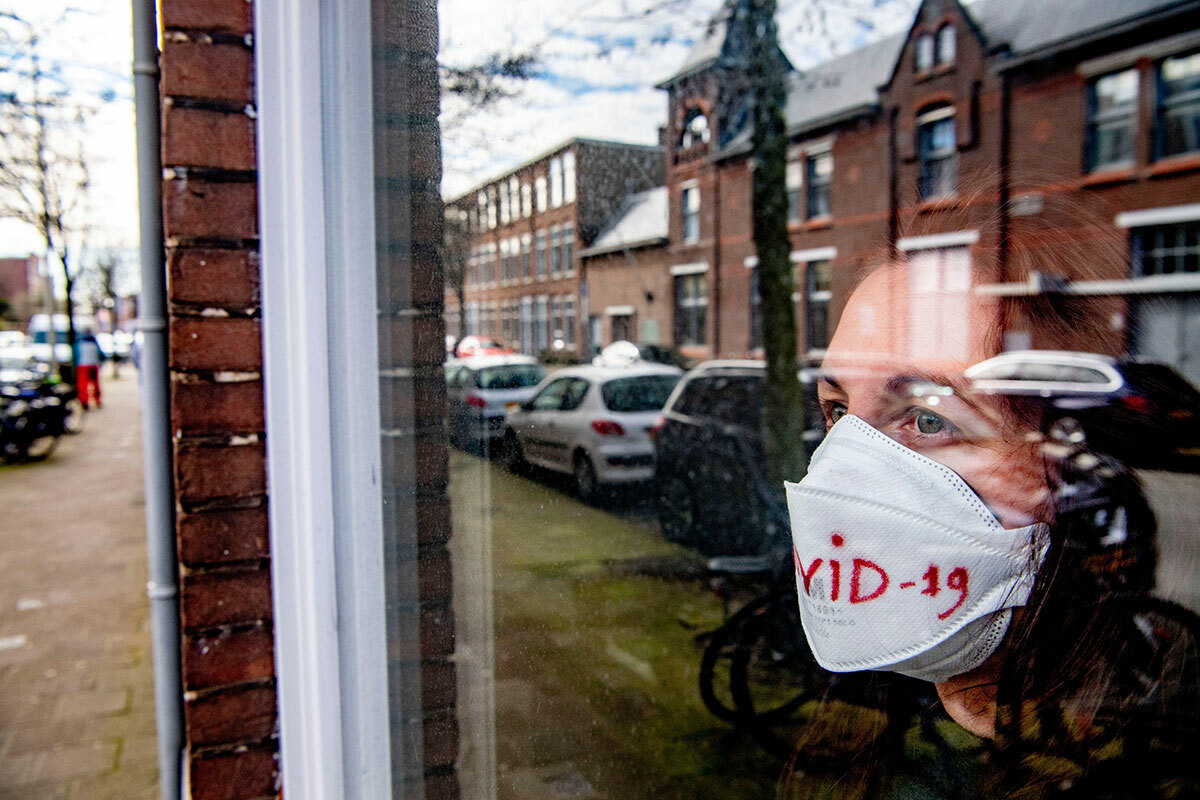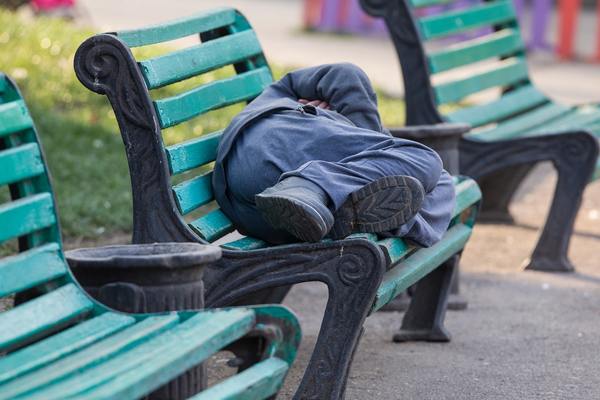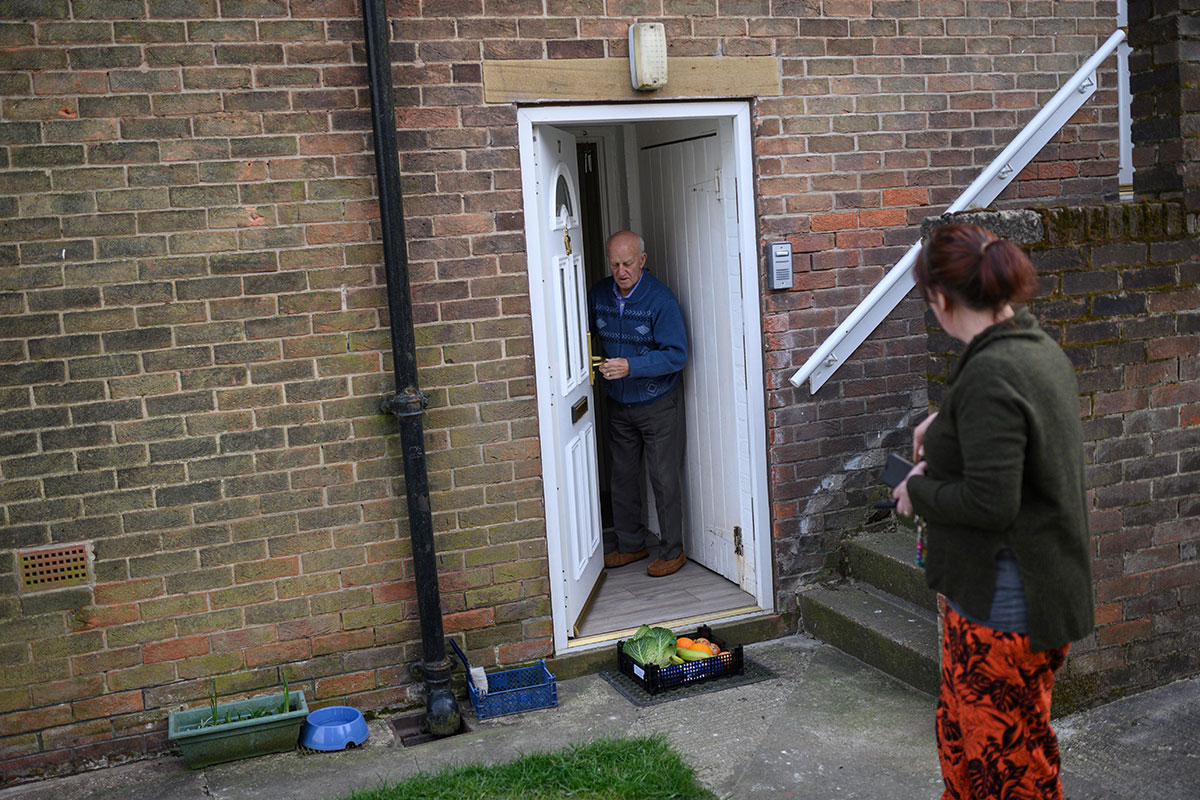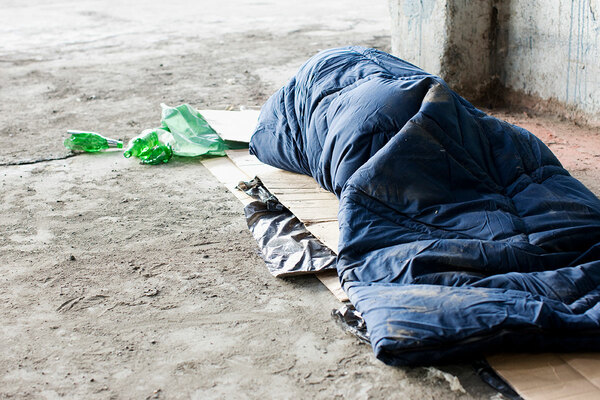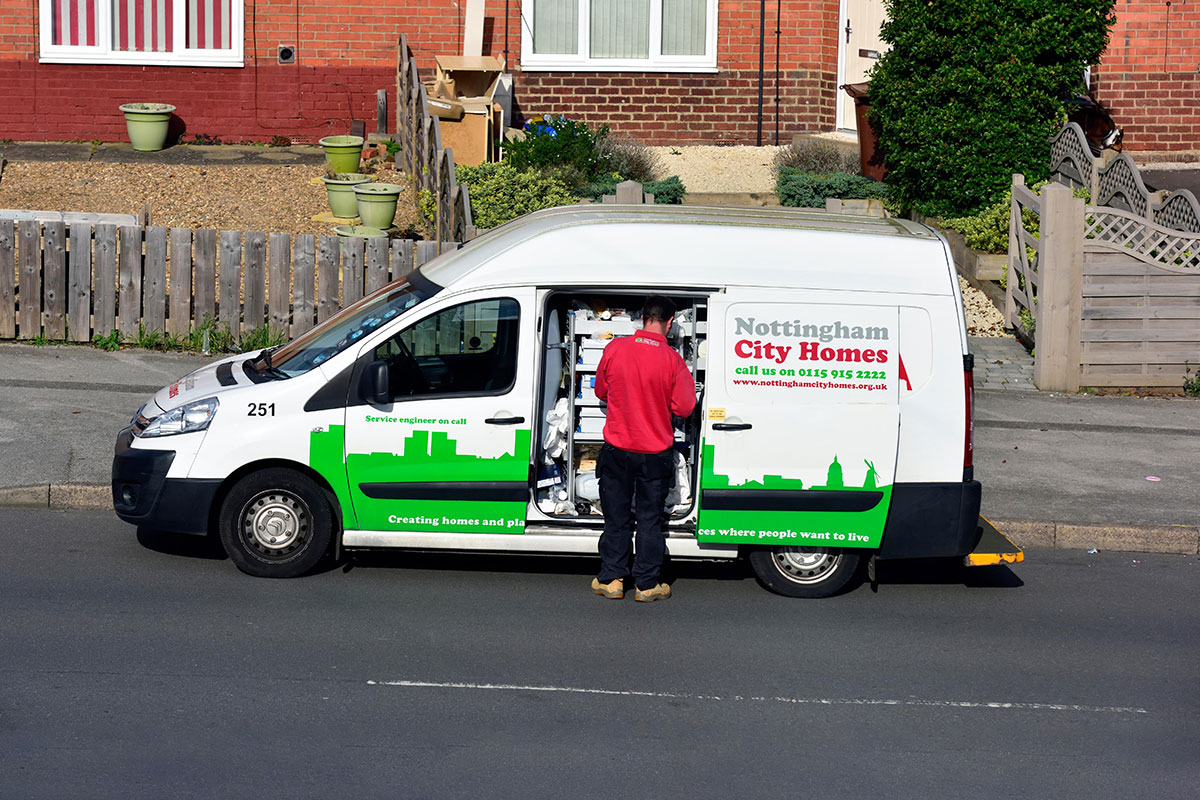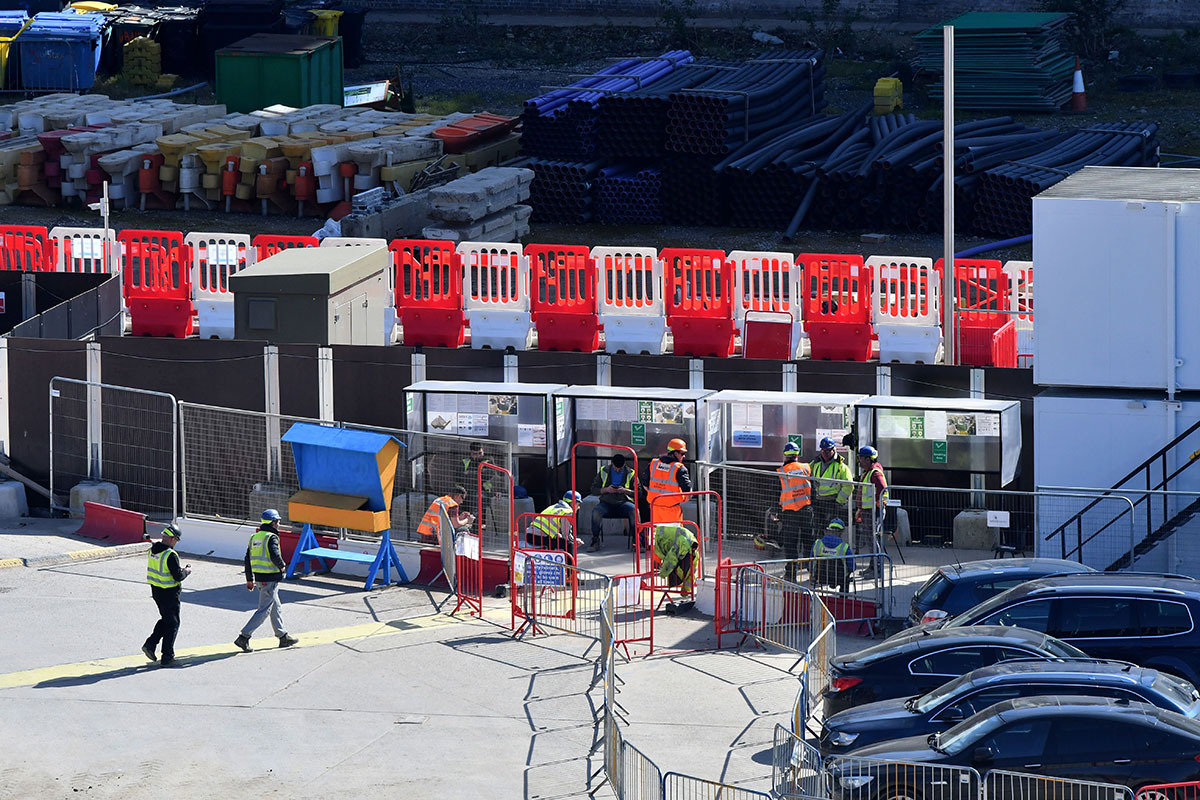The social housing sector and coronavirus: a briefing
As the coronavirus pandemic takes hold of the country Inside Housing looks at the main issues facing the sector, and how it is mobilising to respond. Pictures by Getty and Alamy
Barely a month ago, life in the UK was continuing almost as normal.
We may have been washing our hands a little more, elbow bumping rather than shaking hands and fretting about the increasingly grim news from Italy, China and Iran, but few realised then how fast and how deeply things would change.
Now, with the country on lockdown and the death toll mounting, everything has been turned upside down. Every sector of the economy is adapting to the new reality at breakneck speed, and here Inside Housing runs through the major implications for social housing.
A note: this is a rapidly changing situation and the interviews were carried out largely during the week commencing 16 March. It is possible some situations have changed.
Operations and workforce
Jess McCabe
Social landlords have contingency plans to cover emergency situations like a pandemic. Those plans are now being put to the test.
“Last week was the most challenging we have ever experienced,” says Dasos Christou, executive director of customer relations at Silva Homes.
Or, as John Fisher from CHIC says: “It’s one hell of a shock for everyone.”
There are still some big unknowns and from a strategic point of view planning a way through it clearly is close to impossible. One thing we do know is that the country has been told to stay at home to slow the spread of the virus. Many staff will also fall into the category of vulnerable people who must strictly self-isolate for 12 weeks. Other staff will be juggling childcare now that schools and nurseries have closed to all but the most essential of key workers. There is still no clarity on whether housing staff fall into that category. Those employed by local authorities or management companies have been told to check with their council.
In a WhatsApp group of housing association chief executives, a lack of clarity on this point has been one of the chief frustrations with the government. As yet no one has had a definitive answer - with many associations essentially relying on their own judgement about what is essential and what is not.
“Where people are actually sick, that’s when we need to start plugging gaps”
Landlords have quickly allowed as many staff as possible to work from home. Many seem to be well prepared for remote working – including already having the kit for call centre staff to work from home. Nonetheless, there are concerns, including staff well-being.
“We are relatively advanced in terms of technology and cultural enablers for home and flexible working. The main unknowns are the potential effects on the well-being of our people resulting from them being more physically isolated for long periods,” says one housing association chief executive.
However, there are many staff who simply cannot work from home. “Around 40% of our staff are repairs operatives,” says one senior member of staff at an association. “There’s not a lot a plumber can do from home.”
These staff will still need to self-isolate if sick, or if a member of their household is sick. Michelle Reid, chief executive at Merthyr Valleys Homes, notes that the association is going to be looking for “other things they could take on temporarily just to help out across the organisation”. She notes: “At the moment people aren’t sick so much as self-isolating. We will move into a stage where people are actually sick – that’s when we need to start plugging gaps where we can.”
Others are already struggling with sickness - particularly repairs teams (below).
Many have closed offices – such as Gentoo in Sunderland, which says it is making alternative arrangements for tenants who typically pay their rent in cash in person.
Communicating is in itself a struggle. Some landlords have spoken about an issue with “version control” – or making sure the most up-to-date information is communicated to staff, residents and other stakeholders when government advice is shifting so quickly.
Older and vulnerable tenants
Jess McCabe
It is well known that older people and those with a number of medical conditions are at greater risk of becoming seriously ill or dying from coronavirus.
For social landlords, this is an immediate priority. Many run care homes, housing for older people, and numerous other services. But also many tenants in general needs housing will be at risk (English government statistics tell us that 27% of social housing tenants in England are over 65 – well above the national average of 18%).
The government’s emergency coronavirus legislation includes provisions to suspend the Care Act in England and the equivalent duties in Wales, which would temporarily remove many of the legal requirements related to social care. This has caused a great deal of disquiet in the care sector, but also indicates the scale of what the sector could be facing imminently.
Jonathan Marron, director general for prevention, community and social care at the Department of Health and Social Care, has said in a letter to care providers: “We need to prepare for the possibility that during the peak of an epidemic, a greater number of people will need social care and many staff may be unavailable due to illness or the need to care for loved ones.
“This could mean that you need to focus your resources on ensuring the most serious and urgent care needs are met, and defer meeting other less acute or pressing needs.”
“People might feel safe at home but they are going to feel quite lonely as well”
So far landlords have been moving to reduce immediate risks. Silva Homes and Gentoo are among those that have shut communal areas of their care homes.
Bruce Moore, chief executive at Housing 21, tells Inside Housing: “We moved to restrict visitors at the beginning of last week because it’s an institutional setting with very highly vulnerable patients.” Peabody, meanwhile, is trying to transform its floating support service into a phone-based service.
Self-isolation has mental and physical health risks, which landlords are already planning how to mitigate. Clare Budden, chief executive of ClwydAlyn housing association in North Wales, says that the organisation is increasing communication with tenants who are forced into isolation – particularly older residents.
She says: “What we agreed at our planning meeting is to pull together a list of all our known vulnerable customers and, through our contact centre, calling those people once a week to check how they are and see if there’s anything we can support them with.
“Particularly for older people, loneliness is a really big issue. People might feel safe at home but they are going to feel quite lonely as well.”
Arrears and evictions
Dominic Brady
Concern has been growing for some time that as coronavirus forces more people out of work, many will fail to pay rent and will therefore face eviction.
A handful of housing associations, including South Yorkshire Housing Association and Plymouth Community Homes, stated early on that they would not evict any tenants who failed to pay rent due to loss of earnings related to COVID-19. The National Housing Federation (NHF) said it does not expect any social housing tenants to be evicted as a result of the outbreak.
The government intervened, promising “emergency legislation” to protect tenants in social and private housing due to the “extraordinary times”. In the event, though, this proved far less than many expected – with the simple extension of the notice period to three months.
Nonetheless, if social landlords stick to the public pledges not to evict, it should not be a particular problem for social housing residents. What will be difficult, however, is rents, should tenants find they are unable to pay.
The government promised “emergency legislation” in “extraordinary times”
While social landlords will not want to pursue tenants who are unable to afford their rent, they must also collect enough income to pay for their operations and staff.
Some tenants' groups are pressuring for a rent holiday, equivalent to the mortgage holiday offered to homeowners. But there has been no government support for this, meaning any landlords who offered it would face a blackhole in their income.
This is where the benefits system comes in and housing associations are stepping up services to help tenants make prompt claims. The NHF is also lobbying government to urgently alter the Universal Credit system to make it simpler and quicker to claim.
As Scott Dorling, a partner at Trowers & Hamlins, explained in an Inside Housing column, offering rent breaks or holidays is not as simple as one might imagine.
Landlords will need to demonstrate that they have considered a range of factors: including how the decision may impact its ability to meet its obligations more generally. If a rent deferral and repayment is preferred, the social landlord must be very careful to ensure it meets Financial Conduct Authority requirements – including registration.
Homelessness
Lucie Heath
Rough sleepers, and those who run services like night shelters and day centres, may find it more difficult than most in following government advice surrounding social distancing and self-isolation.
Last week, a winter night shelter was forced to close in Glasgow after one staff member and one guest tested positive for the virus.
"Sadiq Khan has block-booked 300 hotel rooms in the capital"
Councils and charities are now scrambling to find places where rough sleepers exhibiting the symptoms of coronavirus can self-isolate safely.
One possible solution has come from London mayor Sadiq Khan, who has block-booked 300 hotel rooms in the capital as part of a trial scheme.
However, there are also thousands of families living in overcrowded temporary accommodation, many of whom are forced to share communal kitchen and bathroom areas.
Last week, Labour MPs Meg Hillier and Karen Buck wrote to the government asking it to support housing associations to buy empty new build homes in order to house families living in cramped conditions.
Yet while the government has put up £3.2m to support rough sleepers who need to isolate, it has remained largely silent on this issue.
The extension of the notice period for evictions will also provide no protection to families in this type of housing as they do not have formal tenancies.
On Tuesday, some of these fears were realised with the sudden closure of many Travelodges, forcing out vulnerable families, despite government advice.
Repairs
Emergency repairs need to be carried out, but entering people’s homes is a problem
Peter Apps
Repairs look set to be a major challenge, with many associations moving to an emergency-only service.
“We’re seeing an increasing number of organisations moving to emergency repairs [only],” says John Fisher, managing director at procurement consultancy CHIC. “They are putting on hold other repairs and other works, on the basis they want to protect the safety and well-being of customers and staff.”
“Shortages of PPE and hand sanitiser are a practical concern that is influencing our approach at the moment”
L&Q said this week that it has enacted a prioritisation plan for its repairs, to keep emergency requests well serviced.
One key challenge is the shortage of personal protective equipment (PPE) – currently a global problem, which is most acute in the health service.
“Shortages of PPE and hand sanitiser are a practical concern that is influencing our approach at the moment. We would commit to more if we were able to provide at least some measures to help safeguard our frontline staff,” said one association.
In the chief executive's WhatsApp group, PPE has been raised very frequently. Some fear frontline repairs services could grind to a halt completely if the issues aren't resolved. Others have warned of suppliers cranking up prices.
This lack of PPE creates real fear for the safety of operatives. There are understood to be organisations where as many as 20% of frontline teams are currently isolating due to sickness. This is plainly unsustainable, both from a human and business perspective.
There is also a lack of clarity about whether these repairs operatives are to be considered ‘key workers’.
A government spokesperson told Inside Housing that key workers at local authorities “are those who work in occupations essential to the effective delivery of the COVID-19 response or delivering essential public services”. This would also cover ALMOs, but no clarity has yet been given for housing associations.
A further question is how contractors will survive. Mears published an update on Wednesday saying it expected to continue to receive payment from local authority contracts and was seeking additional debt. But it did anticipate significant disruption.
There was some consternation among chief executives when materials suppliers began shutting down due to the lockdown at the start of this week. But this is thought to have eased with some big players such as Travis Perkins and Jewson offering to supply trades carrying out essential services despite closing their stores to the public.
Whether statutory obligations to do things such as annual gas checks will be altered also remains to be seen.
In addition to the difficulties around emergency repairs, there is the question of doing the reactive repairs once the crisis has eased. Landlords will be building up backlogs of hundreds, if not thousands, of repairs.
Development
Many building sites have closed, which presents a significant financial challenge
Peter Apps
While the focus has been on frontline services, it appears inevitable that there will be a long-term hit on development activity.
On Tuesday morning, housing secretary Robert Jenrick said building sites could stay open, but encouraged workers to follow social distancing guidelines while on site.
“Landlords are at risk for reduced income”
The practical problems of achieving this were immediately raised and a host of larger builders immediately announced that they were closing sites anyway: Taylor Wimpey, Barratt, Galliard and others.
The sector’s biggest builder, L&Q, followed suit, saying it took the decision “in the interest of customer and employee safety” and would review it in three weeks.
Many other organisations have seen the contractors and developers they work with close sites. This hiatus presents a financial challenge.
“Landlords are at risk for reduced income,” says John Fisher at CHIC. “Their business plans and cash flows are relatively sensitive because they’re encouraged to borrow and build new homes.”
One key question about this slowdown is the impact on essential post-Grenfell cladding removal, at least some of which has also been halted.
We do not know how long it will take for the sector to get up to speed again, nor do we know what sort of capacity it will have once it does. The 2008 crash proved tough, but coronavirus looks set to be worse.
More on coronavirus
To see all our coronavirus coverage to date – including the latest news, advice to providers, comment and analysis – use the link below.
Sign up for our daily newsletter
Already have an account? Click here to manage your newsletters
